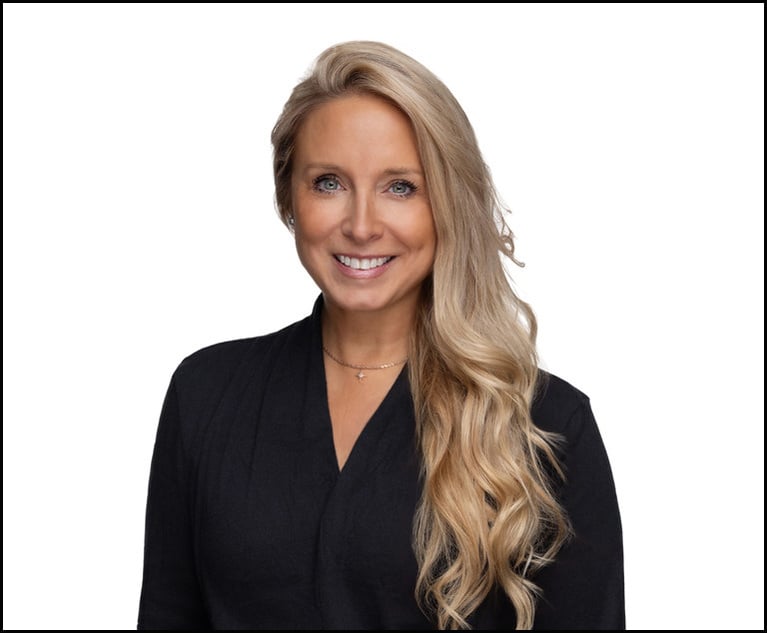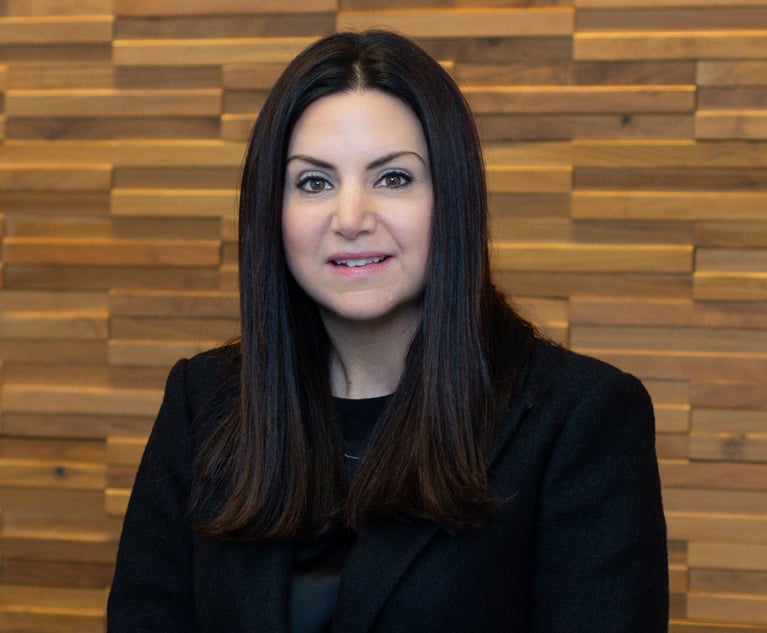One Pa. Law Firm Scores High on Diversity, but Diverse Attorney Advancement Still a Struggle Overall
Metrics crucial to attaining equity partner status are not being meaningfully tracked, exacerbating the gap between associate and equity partner representation for women, minority and LGBTQ+ attorneys, researchers at Diversity Lab and ChIP reported.
January 28, 2020 at 04:10 PM
5 minute read
The original version of this story was published on The American Lawyer
 Photo: Shutterstock.com
Photo: Shutterstock.com
Progress on diversity and inclusion at major law firms has failed to advance into the partnership ranks, largely because many career-enhancing opportunities, such as origination credit and a firm's non-billable activities, aren't meaningfully tracked, according to a study by legal diversity organizations Diversity Lab and ChIP.
The study's results, included in The Inclusion Blueprint, found that pay equity, origination credit, non-billable activities and first-chair responsibilities have yet to be scrutinized and tracked at the majority of firms. While there has been progress, it also found that women and minority attorneys have not yet broken into the equity partner ranks at meaningful levels.
The Inclusion Blueprint is a joint initiative by Diversity Lab and ChIPs that measures whether firms have implemented proven practices to attract and retain diverse talent. It also offers guidance on how firms can improve their diversity. It aims to ensure that lawyers of all backgrounds and identities have equal access to opportunities and strives to put an end to any unconscious biases that may exist within firms.
The survey used law school diversity representation figures to craft an "inclusion blueprint" that the study's authors said "are achievable but likely a stretch for most of the Am Law 200."
"The Inclusion Blueprint targets are a middle-ground between those numbers and a stretch for the majority of Am Law 200 firms to reach in the short-term. As more firms achieve these thresholds, our plan is to increase the targets annually until they mirror law school graduation rates," said Caren Ulrich Stacy, CEO of Diversity Lab, in a statement.
For the 59 Am Law 200 firms and 14 non-Am Law 200 firms included in the study, the blueprint metrics were broken into five categories. These included overall firm leadership as well as to practice groups such as antitrust, intellectual property and privacy; finance and real estate; litigation; and regulatory.
Each of the five categories was asked about their record in meeting the representation thresholds for diversity, year-over-year progress in representation, inclusion practices and tracking metrics. The threshold targets were:
- 30% representation of women.
- 15% representation among racial and ethnic minorities.
- 5% representation of LGBTQ+ lawyers.
Just 7% of the law firms surveyed met or exceeded the equity partner gender threshold, while 43% met the nonequity threshold. Regarding race, 17% of firms met the equity partner goal and 30% met or exceeded the nonequity goal. LGBTQ+ attorneys fared the worst, with just 8% of firms hitting the 5% threshold.
The gap between the nonequity and equity partnership among minority attorneys is nothing new, as minority partners have traditionally lacked access to opportunities in building a book of business. The same goes for women, which is why the lack of transparency and tracking in business-generating activities such as origination was highlighted by the study's authors.
"It's striking to me that the least tracked inclusion activities at the leadership and partner levels include non-billable hours, origination credit and pay equity. These are possibly the most important activities a firm should track for its partners," Ulrich-Stacy said.
"Our research shows that women partners often do double or triple the amount of non-billable firm citizenship work that is incredibly valuable to firms, such as recruiting and mentoring talent, but they don't get credit towards compensation in the same way that business origination does. This imbalance is likely contributing to the pay gap, which also isn't getting tracked and measured by firms routinely," she continued.
Although women and minority partners are still underrepresented in the equity tier, the firms reported signs of improvement: 63% of firms reported an increase in women equity partners, 54% reported an increase in minority equity partners, and 27% reported an increase in LBGTQ+ equity partners.
Practice Groups and Associates
The surveyed firms performed much better on a practice group and associate level. Among the respondents, 80% hit the goal for women associates, 70% met or exceeded the racial minority threshold and 46% achieved the LGBTQ+ goal.
Some practice groups fared better than others among certain demographics. Women are most represented among regulatory practice groups, with 92% of firms hitting the representational threshold for women associates. About 35% of litigation practice groups met the threshold for women equity partners.
Minority attorneys are best represented among the antitrust, IP, privacy and cyber practice groups, with 47% of firms meeting or exceeding the 15% threshold for minority equity partners and 79% hitting the minority associate goal.
The performance for business, finance and real estate practices was worse than all others. Just 22% of firms hit the women equity partner threshold while 16% of firms hit the minority equity partner goal.
Additionally, 13 firms scored highly in one or more of the five categories and were dubbed "2019 Inclusion Blueprint Champions."
Leadership:
- Brooks Kushman
- DLA Piper
- Sheppard, Mullin, Richter & Hampton
Antitrust, IP, Privacy and Cyber:
- Arnold & Porter Kaye Scholer
- Baker Botts
- Brooks Kushman
- Morrison & Foerster
- Procopio, Cory, Hargreaves & Savitch
Business, Finance and Real Estate:
- Perkins Coie
- Reed Smith
- Sheppard Mullin
- Wilmer Cutler Pickering Hale and Dorr
Litigation:
- Goldberg Segalla
- Ropes & Gray
- Sheppard Mullin
Regulatory:
- Reed Smith
- Sheppard Mullin
- Wiley Rein
The full report can be found on the Diversity Lab website.
Read More:
At More Than One-Third of the Am Law 100, Minority Partners Are Disproportionately Nonequity
Diversity Initiative Names 64 Firms 'Mansfield 2.0′ Certified
This content has been archived. It is available through our partners, LexisNexis® and Bloomberg Law.
To view this content, please continue to their sites.
Not a Lexis Subscriber?
Subscribe Now
Not a Bloomberg Law Subscriber?
Subscribe Now
NOT FOR REPRINT
© 2025 ALM Global, LLC, All Rights Reserved. Request academic re-use from www.copyright.com. All other uses, submit a request to [email protected]. For more information visit Asset & Logo Licensing.
You Might Like
View All


Pa. Superior Court Rules Pizza Chain Liable for Franchisee Driver's Crash
4 minute read
Law Firms Mentioned
Trending Stories
- 1Thursday Newspaper
- 2Public Notices/Calendars
- 3Judicial Ethics Opinion 24-117
- 4Rejuvenation of a Sharp Employer Non-Compete Tool: Delaware Supreme Court Reinvigorates the Employee Choice Doctrine
- 5Mastering Litigation in New York’s Commercial Division Part V, Leave It to the Experts: Expert Discovery in the New York Commercial Division
Who Got The Work
J. Brugh Lower of Gibbons has entered an appearance for industrial equipment supplier Devco Corporation in a pending trademark infringement lawsuit. The suit, accusing the defendant of selling knock-off Graco products, was filed Dec. 18 in New Jersey District Court by Rivkin Radler on behalf of Graco Inc. and Graco Minnesota. The case, assigned to U.S. District Judge Zahid N. Quraishi, is 3:24-cv-11294, Graco Inc. et al v. Devco Corporation.
Who Got The Work
Rebecca Maller-Stein and Kent A. Yalowitz of Arnold & Porter Kaye Scholer have entered their appearances for Hanaco Venture Capital and its executives, Lior Prosor and David Frankel, in a pending securities lawsuit. The action, filed on Dec. 24 in New York Southern District Court by Zell, Aron & Co. on behalf of Goldeneye Advisors, accuses the defendants of negligently and fraudulently managing the plaintiff's $1 million investment. The case, assigned to U.S. District Judge Vernon S. Broderick, is 1:24-cv-09918, Goldeneye Advisors, LLC v. Hanaco Venture Capital, Ltd. et al.
Who Got The Work
Attorneys from A&O Shearman has stepped in as defense counsel for Toronto-Dominion Bank and other defendants in a pending securities class action. The suit, filed Dec. 11 in New York Southern District Court by Bleichmar Fonti & Auld, accuses the defendants of concealing the bank's 'pervasive' deficiencies in regards to its compliance with the Bank Secrecy Act and the quality of its anti-money laundering controls. The case, assigned to U.S. District Judge Arun Subramanian, is 1:24-cv-09445, Gonzalez v. The Toronto-Dominion Bank et al.
Who Got The Work
Crown Castle International, a Pennsylvania company providing shared communications infrastructure, has turned to Luke D. Wolf of Gordon Rees Scully Mansukhani to fend off a pending breach-of-contract lawsuit. The court action, filed Nov. 25 in Michigan Eastern District Court by Hooper Hathaway PC on behalf of The Town Residences LLC, accuses Crown Castle of failing to transfer approximately $30,000 in utility payments from T-Mobile in breach of a roof-top lease and assignment agreement. The case, assigned to U.S. District Judge Susan K. Declercq, is 2:24-cv-13131, The Town Residences LLC v. T-Mobile US, Inc. et al.
Who Got The Work
Wilfred P. Coronato and Daniel M. Schwartz of McCarter & English have stepped in as defense counsel to Electrolux Home Products Inc. in a pending product liability lawsuit. The court action, filed Nov. 26 in New York Eastern District Court by Poulos Lopiccolo PC and Nagel Rice LLP on behalf of David Stern, alleges that the defendant's refrigerators’ drawers and shelving repeatedly break and fall apart within months after purchase. The case, assigned to U.S. District Judge Joan M. Azrack, is 2:24-cv-08204, Stern v. Electrolux Home Products, Inc.
Featured Firms
Law Offices of Gary Martin Hays & Associates, P.C.
(470) 294-1674
Law Offices of Mark E. Salomone
(857) 444-6468
Smith & Hassler
(713) 739-1250





